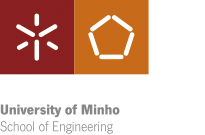Monday, 2/26/2018
Interview cycle to the
members of the EEUM’s Advisory Council. In this edition, Fernando Santo,
Administrator of the Montepio Asset Management, in Lisbon.
The Advisory Council of the School of Engineering of the University of
Minho (EEUM) is the consultative body to advise the School’s government bodies
regarding strategic definition subjects. Composed of nine personalities of
recognised merit in the fields of their activity, these members have the
mission to advise the School on issues related to pedagogical, scientific and
interaction with society activities. In this edition, we spoke with Fernando
Santo, Administrator of Montepio Asset Management, in Lisbon.
How important is it to be
a member of the EEUM’s Advisory Council?
I devoted six years of my life to the Board of Engineers as President,
during which I helped to promote the excellence of Portuguese engineering and was
involved in the majority of the legislative processes that involved engineering
and the implementation of the Bologna reform in particular. Being now a member
of the Advisory Council is an opportunity be familiar with the work developed
by the EEUM and to contribute with a more transversal vision to the challenges
that our country is facing and the competition between the Engineering Schools
to attract students.
Overall, which are the
contributions of an external member to this Advisory Council?
The external members have diverse experiences in business management, in
different areas of engineering, that they try to transmit to the
representatives of the EEUM in the Advisory Council. When companies recruit new
engineering graduates, they tend to choose former students from the Engineering
Schools that are best positioned in the national ranking and, in particular, in
more specialised areas, such as the EEUM. On the other hand, it is important
that Engineering Schools assume how relevant it is to communicate their
competencies and their students’ results, since the ability to attract students
should be part of their objectives.
As a result of the traditional education model of Engineering Schools,
engineers in general are not prepared to “sell” their knowledge and specific
competencies. In the past, when employability of recent graduates was high,
this was not a very important issue, but today it is increasingly necessary to
be able to communicate our skills.
What is the balance of the
evolution of the EEUM in recent years, under the vision of the current Advisory
Council?
EEUM has the Engineering Schools of the Universities of Oporto, Coimbra,
Aveiro and Vila Real as competitors. In my opinion, the School cannot be
excellent in all areas, but is possible to ensure the specialisation and
differentiation of education in specific areas. As I mentioned, results must be
disseminated, through institutional marketing and the companies with whom there
are partnerships, or also through marketing successful companies which resulted
from the work of former students. On the other hand, Portugal has become
fashionable in tourism, foreign investment for temporary residence, but also in
attracting foreign students, along with the recruitment of Portuguese engineers
to work in engineering companies based in other countries. This openness creates
attraction dynamics that the EEUM should take advantage of.
What challenges will be
presented to the EEUM in the near future, considering the link with the industry
network and civil society?
This is a time of great changes, whether in digital transformation, with
the 4th Revolution, or in the development of cleaner technologies that protect
the environment, with the objective of guaranteeing a better sustainability of
the planet. Therefore, there is a huge field of research and innovation.
However, considering a more common area, I believe that one of the main
challenges is to align the University’s management model, centred on public
administration and the Ministry of Finance’s rules, with a desired and necessary
degree of freedom, associated with responsibility and results of an education system,
which promotes innovation, industry relations and the product development
focused on private partnerships. A University should not be under the same
rules as other public service entities.
+
info: https://www.montepio.org/institucional/grupo-montepio/montepio-gestao-de-activos/

